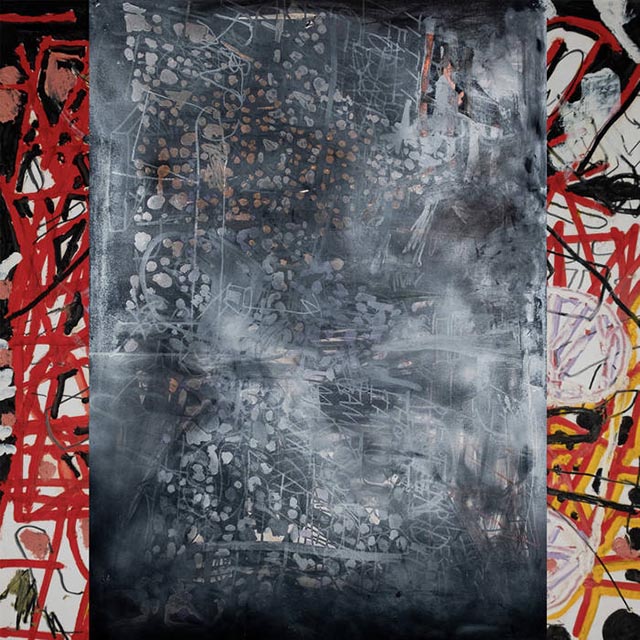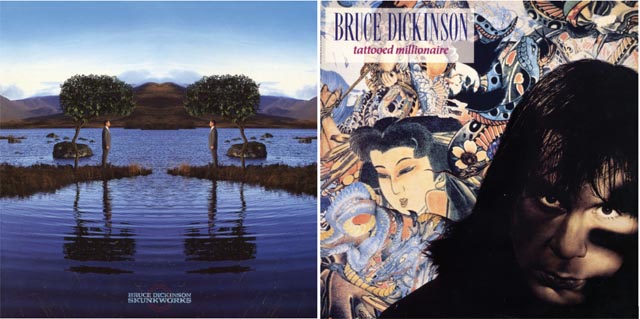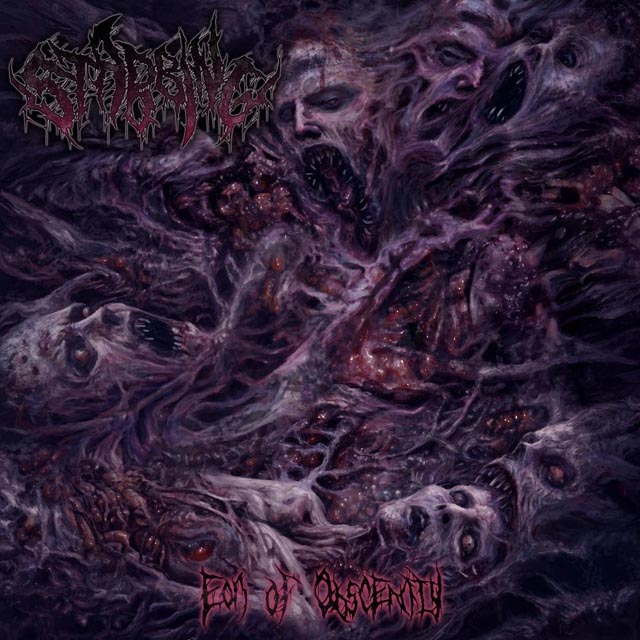One of progressive metal’s most popular and experimental bands, Between the Buried and Me have been carving out a name for themselves since their formation in 2000. The band recently announced their seventh album, Coma Ecliptic, coming out in July on Metal Blade. We caught up with bassist Dan Briggs to chat about the album, which he says “legitimately feels like a rebirth.” Briggs spoke a bit about the concept of the album, the 10th anniversary of Alaska, and a special surprise for attendees of the New England Metal and Hardcore Festival, which they’ll be headlining on Friday, April 17th.
In addition, today the band premiered a new song, “Memory Palace.” As you’ll read in the interview, the song is very in keeping with what Briggs says about the direction of the new album. More keyboards, a lot more clean vocals, and “a big step musically towards a new chapter in the life” of the band.
So tell me a little bit about Coma Ecliptic.
There’s so much to say about it. It’s pretty different. It’s a leap forward in a lot of ways. Structurally, I feel like it’s our most concise piece of work for being a 70-minute over-the-top rock opera. Everything just feels very purposeful to it. The writing of the record – I feel like we were in a different head space. As far as what we’re trying to achieve, we actually had a goal maybe for the first time ever in writing. I feel like the end product really shows that. Without giving too much away, it really is a pretty big step musically toward a new chapter in the life of Between the Buried and Me.
What’s the album about?
Roughly, it’s a story about a guy who’s in a self-induced coma and ends up traversing these different worlds that manifests themselves over the course of three different songs on the album that are all pretty different, trippy environment that he ends up in. How it unfolds from there – we’ll leave until everybody can experience the record. It’s a pretty good story. I’m pretty excited about it.
You referred to it as a “rock opera.” Is that something the whole band is would describe it as?
For me personally, the songs that I was writing early on set the tone. I was really influenced by The Who’s Quadrophenia and The Wall by Pink Floyd. To me after doing the last record which was our first actual musical and lyrical conceptual piece, my thinking was the conceptual format means so much to me and has for a long time. I have been in musicals as a kid and they’re something I still love as an adult. I wanted to do much more with that album’s format. The next logistically step was to really go into this terrain of writing themes – musical and lyrical – that were just really heavy emotionally and drenched with dramatics. I write these themes and you could just tell from the get-go that there is a theme that happens in the second song. As soon as it came to the table, we were like, “Well this has to end the record. This will come back. This is going to be such a crushing ending.” We just felt it immediately. It was such an emotional hit. That’s not something that came to the table in terms of writing before in the past. That’s never been something that sets a tone. It’s always like, “I’ve got this neat riff.” I don’t think this record has that. There’s awesome stuff within the songs, of course. There are still bits of technical prowess throughout it but – I don’t want to say that it has less of an ‘oh wow’ effect, but it has less “oh shit moments.” I think it’s a record you put on, sit back and take in. It really takes you on a journey. The songs are more purposeful and concise in a way. Everything within them makes more sense from part to part. It was such a heavy thing to write. Actually, it was easy and a lot of fun having a direction that we were going toward. Being influenced by records like Quadrophenia and The Wall, it just laid the ground mark.
Yeah, The Wall doesn’t feel like a double album at all.
Thinking of it like a rock opera just allowed me personally to be more free in this new space. Instead of feeling like we’re writing Between the Buried and Me album number seven, this was a fresh new thing. Listening back to the album, it’s totally done now. It’s mixed and mastered as of this past Thursday – last Thursday. Totally done; turned in to the label. Sitting back and listening to it, it legitimately feels like a rebirth. Its elements we’ve toyed with for years, especially in the last couple years but much more in a certain direction less than we’ve been in the past.
How musically different would you say it is?
There’s more of a focus on melody in the record. It’s probably a big spoiler to say, there’s about 80% clean singing – melodic singing. That’s the way the music has been going. It was what was most natural for us to write. That being said, we’re a fucking progressive rock metal band. The music that is within is still very different. We didn’t decide to write a radio rock record. It’s kooky; it’s very Between the Buried and Me. But the people have been following our trajectory since Colors – seven years – these elements have been there. The progressive rock thing has been showing its head since then and it’s the focus now. It’s at the forefront.
In what way would you say the new album is different from Parallax?
The biggest thing from the Parallax II record that was different from The Great Misdirect and Colors and everything in the past was it was the first time that there were full songs that were brought to the table. That never happened before by an individual. A lot of that had to do with setting the tone for an album. With this album, in our early conversations probably like a year ago when we were on tour with Deafheaven, there was this idea that Tommy wanted to scream less. We felt like in the studio when we were recording. that we had more fun with the parts that are melodic that we get to play different instruments on. We had the mandolin, the banjo. The parts where Tommy gets to explore vocal harmonies, different melodies. We get to mess around with keyboard tones. There’s a much bigger keyboard focus on this album, I’ll definitely say that.
It was just exciting to be writing a more conceptual piece of music. Those melodic themes are what tie it all together. That’s just the most natural thing. This record we wanted to set the tone early in the writing process before we were even in the room together. We had a lot of material put together before we were actually in the room for the very first time, which is pretty incredible. On day one, we got a marker board and charted out the demos and stuff that we had. They were all written in place in specific order from the beginning. There were a couple gaps that we knew that were would be pieces that weren’t written. We had the actual layout of the record on rehearsal day one which was pretty incredible. That’s the main difference without getting into very specific musical differences. The idea of a few songs completely done but little small pieces that happen within it. Just setting that tone. When everyone can hear, “Oh okay. Shit. That’s what’s going on. I’m going to be in this mindset.”
When you say there’s going to be more singing, is it going to be more like Tommy’s solo project?
No, definitely not. It’s still very much progressive and wild Between the Buried and Me record but there’s less of an abrasive metal influence. It’s more of an outwardly progressive musical statement – a melodic statement.
How do you think the industry has changed since your band started? You started out on Victory; you’re on Metal Blade now. You’ve been going on almost two decades now, right around the time when Napster happened and everything just drastically changed. How do you think that’s impacted BTBAM?
I think it’s been a great impact for the band. In those early years, the Victory years, we had absolutely no presence, distribution, overseas, at all. It was just really bad. I remember when me and Dustie and Blake first joined right as we were writing Alaska when that record came out, Victory did have an office in London. The band had never been overseas yet. By the time we got there, the end of 2006, that office didn’t exist anymore. We were going over there pretty consistently with whatever CD’s we brought with us, whatever we would have. People weren’t finding our records there but we had fans. I remember the first time we went to Singapore, shows sold out. Three hundred kids there. We were like, “What the heck is going on?” In Japan, the shows were great. We’d go to Australia and it was just like playing in America. It attributed to what we would call file sharing. People find music in alternate ways: sharing it with people, burnt CD’s back then. Wherever it was, the word was spreading and it wasn’t from a label. It wasn’t from playing over there. That’s pretty incredible. Going to somewhere that’s so far from home and seeing that you have a presence is pretty incredible.
I’m somebody who’s still religiously buys physical things. I don’t have an interest in buying something off iTunes unless it’s a podcast. But if I can’t hold it in my hand, I don’t have an interest in it. I know I’m in the minority but it’s the one thing I splurge on and I’m particular about it. Getting vinyl collections and CDs; I still buy a lot of CDs. I love the angles that people have taken trying to make trying to make their passages more interesting. Doing the cool CD and DVD books, the bound books, digipaks, I think those are really nice. I think it’s just an incentive to get people who wouldn’t usually buy to buy it but we never made money selling records. It’s just plain shows. That’s all we know how to do: is write music and play the shit. [laughs] Hundreds of times until we’re absolutely sick of it and you find yourselves still playing the songs. That’s all we know how to do. That’s how we’ve made a living.
So you’re coming up on the tenth anniversary of Alaska. Can you talk about that? Does it feel like it’s been ten years?
2005 was a big year; not only the year Alaska came out, but that was the year Blake and I joined. The beginning of the year in January, I remember one of the first gigs we played was the New England Metal Fest. We were probably the fourth or fifth band on that day on the main stage. I surely never played a stage that big or a show that big. I remember King Diamond played that day. It was just very weird, very surreal. To be going back now ten years later and headlining, it’s a big deal. We’ve made note of it. We haven’t announced it but we are doing something special. I don’t want to say one-off but we’re debuting something really fun, not from the new record, at Metalfest this year. Can’t even divulge anything but we’re taking the chance to make sure that it’s known. We’ve played that festival a lot and to be headlining it is a big deal to us and it’s pretty cool.
Back to Alaska, when I think about writing that album I knew Tommy and Paul, I didn’t know Blake and Dustie, Blake and Dustie knew Tommy and Paul but the five of us never written music together. We had Tommy and Paul who wrote the majority of the stuff on Silent Circus, Dustie and Blake did the writing in their band Glass Casket and I’ve always done the writing in all of my bands. All of the sudden you have five people who are the main composers in their respective groups trying to write and also get to know each other but there was no time. I remember the first meeting: going in, shaking hands, playing a couple of old songs and then we’re working on new stuff right away. Obviously there was some tension at times, it was just weird. When I think back to that record, it’s just a mess in my head. I can’t tell you the last time I listened to the album. It’s probably been about decade since I’ve sat down and listened to the full record. It’s an important thing to commemorate because this lineup has existed for ten years. I think we can safely say that this is Between the Buried and Me, the five of us. A lot of our fans hopped on to that record or Colors. I think Colors is more of a landmark that we’ll actually celebrate. We’re not going to play Alaska in its entirety or anything like that. In 2017, you can definitely expect us to do Colors.
You covered Faith No More on the Anatomy album. What do you think of them coming back?
It’s great. The first song they released from the new album [ed: note “Motherfucker”], I was like, “This is weird! This is great though.” What a classic, just bizarre song to release first. But then I saw they just released one a week ago. It was just a banger, man. It was good. I was psyched. I think a band like that is absolutely needed. If you look at popular heavy rock bands, there’s not a lot that comes to mind, especially ones that are just interesting, it’s unfortunate. Their band always has very interesting careers. I’ve followed Patton everything he’s done for years. Bungle is higher for me than Faith No More but I love Faith No More. Bungle and Fantomas have been a big part of my musical background, for sure.









